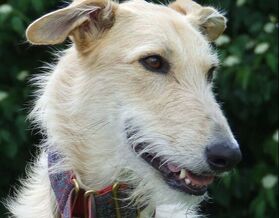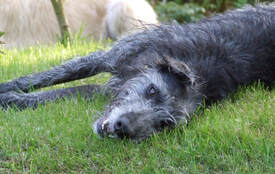What kind of help do you need?
You need to find the right person for the job!
Teaching you! Behaviour & Training

Do you need a Behaviour Consultation
Is your dog nervous of other people and dogs?
Lead reactive?
Use aggressive techniques?
Showing odd behaviours like chasing shadows or light, licking constantly, leaping or spinning or any other activity which is concerning?
A training class won't sort this, you need a behaviour consultation.
A good behaviourist is hard to find and generally costly but might be what your dog needs. The APBC has a register of behaviourists to explore here's a link: https://www.apbc.org.uk/find-an-apbc-member/
There are also some people who are qualified that are not on this register but be sure to ask questions about how they work. If they tell you that teaching your dog obedience or that play engagement will work, understand that behavioural issues require a different approach and someone who understands this.
Is your dog nervous of other people and dogs?
Lead reactive?
Use aggressive techniques?
Showing odd behaviours like chasing shadows or light, licking constantly, leaping or spinning or any other activity which is concerning?
A training class won't sort this, you need a behaviour consultation.
A good behaviourist is hard to find and generally costly but might be what your dog needs. The APBC has a register of behaviourists to explore here's a link: https://www.apbc.org.uk/find-an-apbc-member/
There are also some people who are qualified that are not on this register but be sure to ask questions about how they work. If they tell you that teaching your dog obedience or that play engagement will work, understand that behavioural issues require a different approach and someone who understands this.

1-2-1 Teaching
You might be looking for help with:
Your dog coming back when called.
Walking on a loose lead.
Jumping up.
Leave, etc.
Look for a teacher that caters teaching specifically for your dog and that only uses positive, force-free techniques. Not all dogs are the same and what works for one dog might not for another. Above all, don't expect that every dog likes to play with toys or is comfortable with walking to heel. Also many dogs find 'sit' very uncomfortable (like sighthounds, flat faced dogs or dachshunds) plus too much sitting can damage a puppies hips! Tight leads are terrible for dogs because it inhibits their movement and ability to explore. It also stops them feeling in control of situations and is more likely to result in a dog using fearful aggressive tactics. Always look to learning how to walk your dog on a lose lead but not a flexi or extendable lead!
You might be looking for help with:
Your dog coming back when called.
Walking on a loose lead.
Jumping up.
Leave, etc.
Look for a teacher that caters teaching specifically for your dog and that only uses positive, force-free techniques. Not all dogs are the same and what works for one dog might not for another. Above all, don't expect that every dog likes to play with toys or is comfortable with walking to heel. Also many dogs find 'sit' very uncomfortable (like sighthounds, flat faced dogs or dachshunds) plus too much sitting can damage a puppies hips! Tight leads are terrible for dogs because it inhibits their movement and ability to explore. It also stops them feeling in control of situations and is more likely to result in a dog using fearful aggressive tactics. Always look to learning how to walk your dog on a lose lead but not a flexi or extendable lead!

Rescue Dogs
You never really know the background of a rescue dog becuase many people will avoid saying why they want to get rid of a dog and dogs from abroad might have been subjected to horrible experiences. Some may have been pets that have been lost or dumped and some street dogs which have never lived in a home. Dogs are often traumatised by the past or in losing the home they have always known so the dog you see in a shelter might not be showing their real personality. Expect the dog to take some time to adjust and keep in mind their could be personality changes coming in the future. The main thing is to give a dog the time to trust and bond with you. Trying to rush this can be extremely stressful for a rescue so don't push things. The dog needs to adjust and learn about its new home.
You never really know the background of a rescue dog becuase many people will avoid saying why they want to get rid of a dog and dogs from abroad might have been subjected to horrible experiences. Some may have been pets that have been lost or dumped and some street dogs which have never lived in a home. Dogs are often traumatised by the past or in losing the home they have always known so the dog you see in a shelter might not be showing their real personality. Expect the dog to take some time to adjust and keep in mind their could be personality changes coming in the future. The main thing is to give a dog the time to trust and bond with you. Trying to rush this can be extremely stressful for a rescue so don't push things. The dog needs to adjust and learn about its new home.

Senior Dogs
Senior dogs often develop special needs in old age similar to what we expereince. Among these they can have arthritis, joint and mobility issues, visual or hearing impartment, dementia, and urinary issues or special dietary needs.
Managing old age in a dog can sometimes be exhausting but it is essential that you provide the best care possible for your senior. Regular check-ups are important and your dog might need medication to help with pain. There are lots of other therapies that can help like massage techniques, hydrotherapy or zoopharmacognacy (aromatherapy for animals) but always look for a qualified practitioner. Some herbal remedies can help as well as joint mobility products but be careful where you resource products. There is a lots of harmful, useless and expensive products being sold online!
Most important of all is that you must be understanding of your dog's life changes and that you will have to adapt your lifestyle to suit your elderly dog. They have been faitful to you and now you have
to be faithful to them until the end.
Senior dogs often develop special needs in old age similar to what we expereince. Among these they can have arthritis, joint and mobility issues, visual or hearing impartment, dementia, and urinary issues or special dietary needs.
Managing old age in a dog can sometimes be exhausting but it is essential that you provide the best care possible for your senior. Regular check-ups are important and your dog might need medication to help with pain. There are lots of other therapies that can help like massage techniques, hydrotherapy or zoopharmacognacy (aromatherapy for animals) but always look for a qualified practitioner. Some herbal remedies can help as well as joint mobility products but be careful where you resource products. There is a lots of harmful, useless and expensive products being sold online!
Most important of all is that you must be understanding of your dog's life changes and that you will have to adapt your lifestyle to suit your elderly dog. They have been faitful to you and now you have
to be faithful to them until the end.